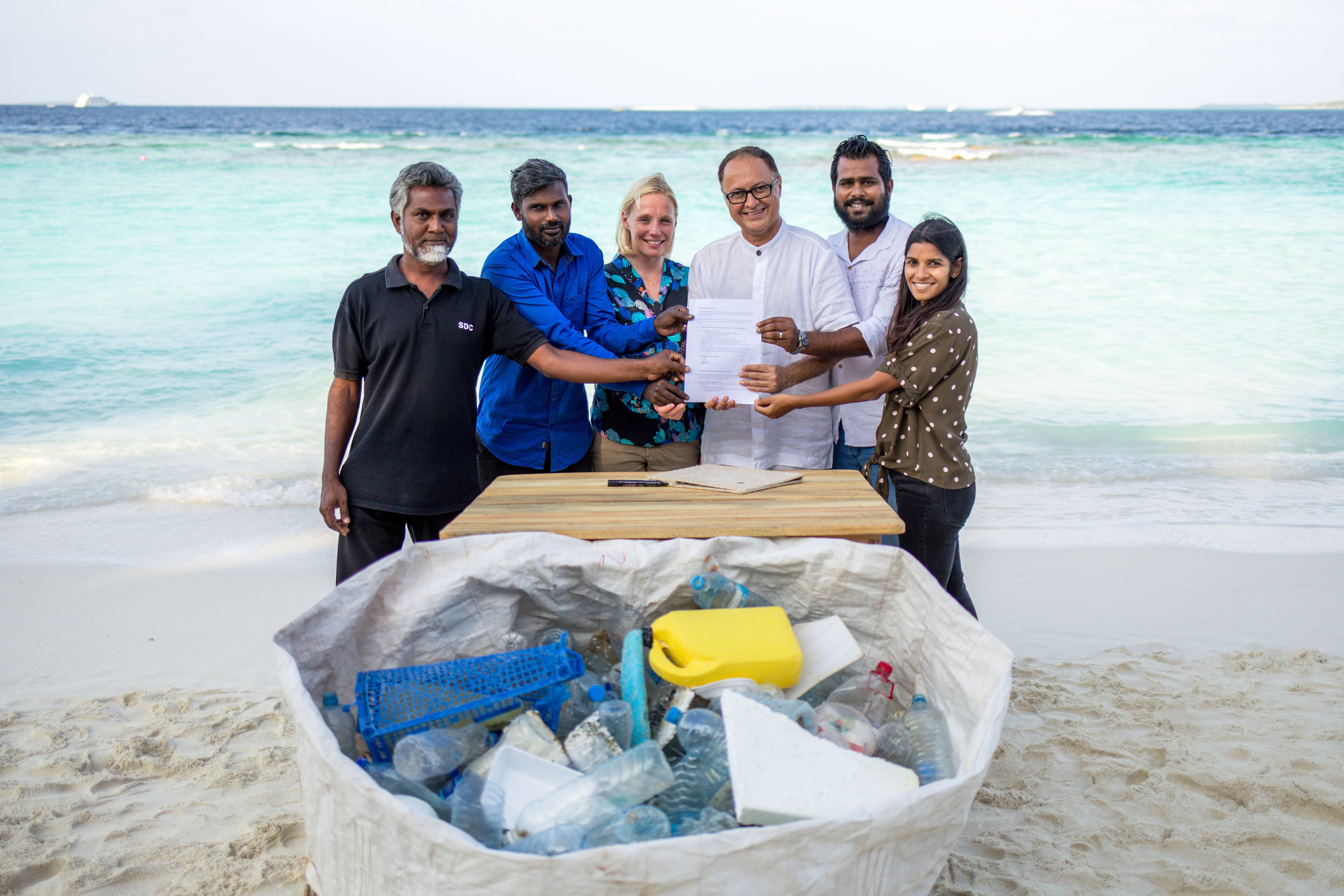With ‘waste-to-wealth’ model, Baa atoll islands aim to stop open burning
The Soneva Fushi resort pledged funding for eco-friendly waste management centres.

11 Feb 2019, 09:00
The Soneva Fushi resort has pledged funding to set up eco-friendly waste management centres on three neighbouring islands in Baa atoll.
In order to stop the open burning of garbage, Maalhos, Dharavandhoo and Kihaadhoo in Baa atoll – a UNESCO biosphere reserve famous for whale shark and manta ray sightings – aim to create “eco-centro” facilities to sort, recycle and reuse waste, a “waste-to-wealth model” pioneered at Soneva Fushi.
“At the resort, food and organic waste, metals, and bottles are chipped, ground down or composted, and turned into things of economic value, such as concrete building blocks and fertilizer,” Soneva explained in a press statement. “Plastic waste is either recycled or used to create useful new objects.”
The open burning of garbage on local islands poses a public health and environmental hazard, a longstanding problem that has been worsened by plastic waste pollution with bottles, bags and other detritus littering beaches, smothering coral reefs and killing marine life.
Become a member
Get full access to our archive and personalise your experience.
Already a member?
Discussion
No comments yet. Be the first to share your thoughts!
No comments yet. Be the first to join the conversation!
Join the Conversation
Sign in to share your thoughts under an alias and take part in the discussion. Independent journalism thrives on open, respectful debate — your voice matters.




